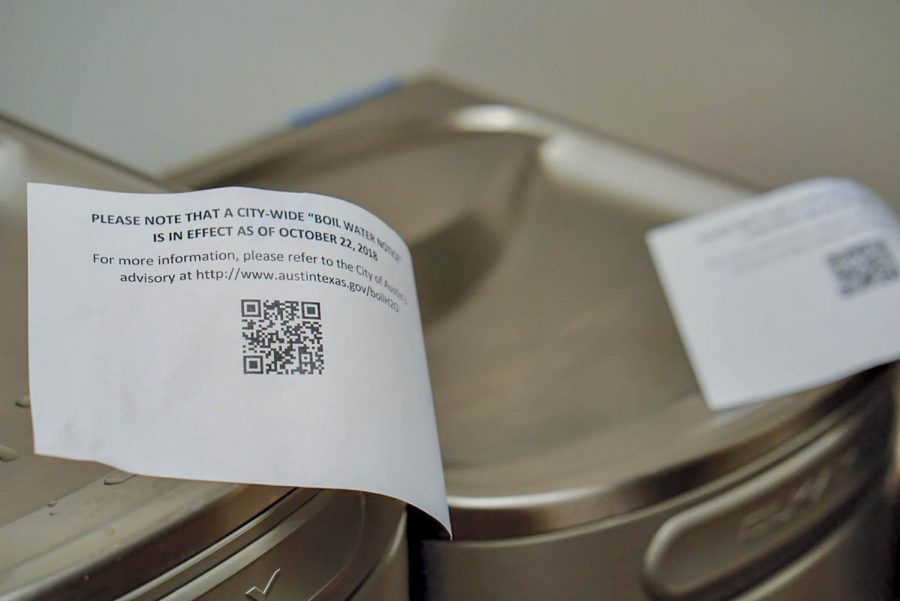Austin Water Utility issues first-ever citywide boil alert after flooding
Water fountains at St. Edward’s have been marked with warning labels following the boil alert.
The City of Austin Water Utility issued a boil alert Monday for all residents following an influx of silt and debris into the city’s water supply, according to the local government’s website. A “boil alert” requires residents to boil water for at least three minutes in order to assure that it is safe for human consumption.
“To provide necessary water pressure for fire protection, plants must distribute water at treatment levels not typical of the utility’s high standards for consumption,” the water utility said in a press release.
Another purpose of the restrictions is to reduce overall water use “to allow treatment plant operations to stabilize,” according to the government’s website.
To this end, the city has prohibited all outdoor water use, including irrigation, washing cars and operating an “ornamental fountain or pond.”
This is the first time a citywide alert has ever been issued in Austin, affecting the more than one million users of the water system, according to NPR.
“Unfortunately, this is simply a case of Mother Nature throwing more at the system than the system can currently process,” said City Manager Spencer Cronk.
The water utility, or Austin Water, is currently producing only around a third of the usual amount due to the debris and flooding. Under normal circumstances, Austin Water produces about 300 million gallons of treated water, according to NPR.
Despite assurances that the water utility is doing everything it can to deal with the silt and debris, Austin Water Director Greg Meszaros acknowledged that the immediate future of the boil alert is still uncertain.
“I don’t know when it will end. We’ll just have to take this day by day and hour by hour,” Meszaros said.
Although this is the first citywide boil alert in Austin, it is unlikely to be the last if the infrastructure remains unchanged. Scientists have warned that flooding in Central Texas will increase in both frequency and intensity due to the effects of climate change, according to the Austin-American Statesman.
Along with individual households, Austin-area institutions have been affected by the boil alert. Here at St. Edward’s University, warning labels have been placed on the water fountains in several buildings, and the on-campus Jo’s coffee shops are serving a limited menu.
“It’s kind of morally degrading having to tell people, ’Oh, we don’t have coffee’ when we’re a coffee shop,” junior and Jo’s barista Nadia Herrada said.
Austin ISD has advised parents to equip their children with water bottles before sending them off to school, according to ABC News.
The flooding has caused tap water to occasionally appear brown and milky, due to the excess mud and silt in the water system.







